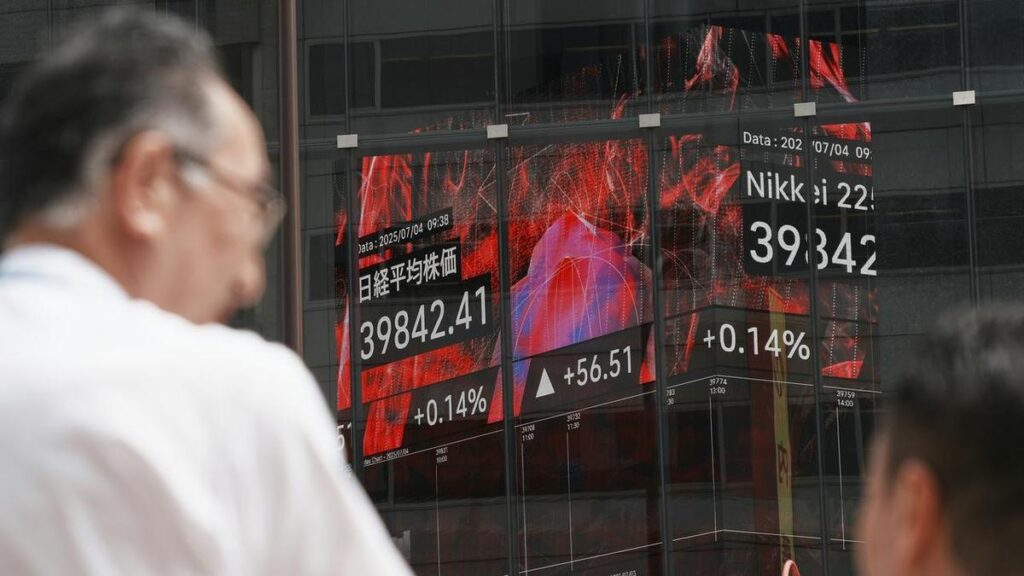
The financial markets in both the United States and Asia experienced declines as investors reacted to recent comments from former President Donald Trump. He suggested imposing a 30 percent tariff on goods imported from the European Union (EU). This statement has raised concerns about escalating trade tensions and their potential impact on global economic stability.
Futures for the S&P 500 fell by approximately 0.4 percent in early trading. The drop reflects uncertainty surrounding U.S. trade policy and its implications for international relations. Meanwhile, in Asia, the Nikkei index in Japan recorded a modest decline of 0.3 percent, joining a broader trend of caution among investors in the region.
The euro also experienced a slight dip against the U.S. dollar, further indicating market unease. Trump’s remarks have reignited fears about a potential trade war, which many believe could disrupt supply chains and increase costs for consumers. Analysts warn that such tariffs could lead to retaliatory measures from the EU, exacerbating the situation.
Investor sentiment remains fragile as the global economy grapples with various challenges, including inflationary pressures and the lingering effects of the COVID-19 pandemic. The uncertainty surrounding U.S. trade policy adds another layer of complexity to an already volatile environment.
As market participants closely monitor developments, experts suggest that clarity on trade relations will be crucial for stabilizing market conditions. In the coming days, attention will likely shift to any official statements from U.S. trade representatives and their European counterparts to gauge the trajectory of these discussions.
The situation underscores the interconnected nature of global markets, where a single comment can reverberate across continents and impact millions. Investors are advised to stay informed and prepared for further fluctuations as negotiations unfold.






